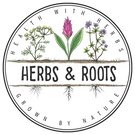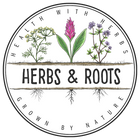properties. These products are derived from various plant sources and offer a natural
alternative to conventional medicines. Herbal products have gained popularity in recent
years due to the increasing awareness of the harmful side effects associated with
synthetic drugs. In this article, we will explore the benefits of herbal products and their
various uses.
What are herbal products?
Herbal products are derived from various parts of plants, such as leaves, flowers,
stems, roots, and seeds. These products contain active compounds that offer
therapeutic benefits. Herbal products are available in various forms, such as teas,
tinctures, capsules, creams, and oils.
Benefits of herbal products
Herbal products offer numerous benefits, including:
1. Natural: Herbal products are derived from plants and do not contain synthetic
chemicals. They offer a natural alternative to conventional medicines and are generally
considered safe and effective.
2. Fewer side effects: Herbal products are generally well-tolerated and have fewer side
effects than conventional medicines. However, it is essential to note that herbal
products can interact with other medications, and some people may be allergic to
certain herbs.
3. Wide range of uses: Herbal products have a wide range of uses and can be used to
treat various health conditions, such as anxiety, depression, insomnia, digestive
problems, skin problems, and respiratory problems.
4. Affordable: Herbal products are generally more affordable than conventional medicines,
making them accessible to a wider range of people.
Uses of herbal products
Herbal products have various uses, some of which are discussed below:
1. Anxiety and depression: Herbal products such as St. John's wort and valerian root are
commonly used to treat anxiety and depression. These herbs contain active compounds
that have a calming effect on the nervous system.
2. Digestive problems: Herbal products such as ginger, peppermint, and fennel are
commonly used to treat digestive problems such as bloating, gas, and nausea. These
herbs contain active compounds that help to soothe the digestive system and promote
healthy digestion.
3. Skin problems: Herbal products such as aloe vera and calendula are commonly used to
treat skin problems such as acne, eczema, and psoriasis. These herbs contain active
compounds that have anti-inflammatory and soothing properties.
4. Respiratory problems: Herbal products such as eucalyptus and peppermint are
commonly used to treat respiratory problems such as colds, coughs, and sinusitis.
These herbs contain active compounds that help to relieve congestion and promote
healthy breathing.
5. Women's health: Herbal products such as red clover and black cohosh are commonly
used to treat women's health problems such as hot flashes, menstrual cramps, and
menopausal symptoms. These herbs contain active compounds that help to balance
hormones and promote overall health.
Popular herbal products
Some popular herbal products include:
1. Echinacea: Echinacea is commonly used to boost the immune system and prevent
colds and flu. It contains active compounds that help to stimulate the immune system.
2. Ginkgo biloba: Ginkgo biloba is commonly used to improve memory and cognitive
function. It contains active compounds that help to improve blood flow to the brain.
3. Turmeric: Turmeric is commonly used for its anti-inflammatory properties. It contains
active compounds that help to reduce inflammation in the body.
4. Chamomile: Chamomile is commonly used to promote relaxation and relieve anxiety. It
contains active compounds that have a calming effect on the nervous system.
5. Saw palmetto: Saw palmetto is commonly used to treat prostate problems in men. It
contains active compounds that help to reduce inflammation in the prostate gland.
Conclusion
Herbal products offer a natural alternative to conventional medicines and have
numerous health

